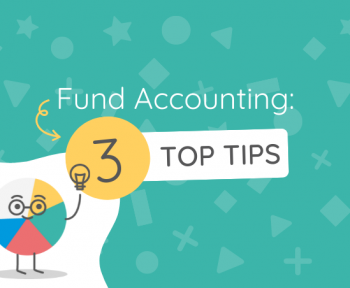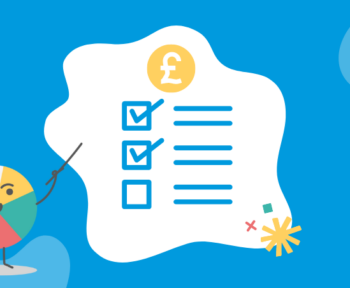Are you wondering what kind of audit or examination your charity needs for your year end accounts?
Read some top tips for preparing for an independent examination, working with your independent examiner, and what other checks your charity might need.
In this article:
What is an independent examination?
An independent examination is an external check of your statutory (year end) accounts.
The examination has to be done by someone who was not involved in putting the accounts together. The examiner will perform various accounting checks, such as:
- whether the bank balances from your bank statements match your accounts;
- whether you are right to recognise (and not recognise) certain forms of income (depending on the income recognition criteria of entitlement, measurability, and probability); or
- whether you have spent restricted funds in line with their restrictions.
As well as your accounting records, your examiner will likely ask to see various forms of supporting documentation, for example:
- Original bank statements
- Payroll reports
- Grant or legacy documentation not stored on your accounting system
- Receipts not stored on your accounting system
- Your charity’s constitution or governing document
- Minutes of your trustee meetings
This is not an exhaustive list, but an example of some commonly requested documentation. You should ask your examiner for the list of paperwork they will require in good time.
Please note that this blog refers to various reporting thresholds for the Charity Commission in England and Wales. At the time of writing, some of these thresholds are different in Scotland and elsewhere. There will be a change to these thresholds from 30 September 2026. If you are not sure, contact your independent examiner or charity regulator.
You can find out more from these charity regulators here:
In the video below, Tim Wyatt, from Wyatt & Co Chartered Accountants, explains more about the Independent Examination of Charity Accounts:
Does my organisation need to have an examination?
If your charity’s income is over £25,000 a year you need to have an independent examination.
If your organisation has an income of over £1 million, and/or assets over £3.26 million you will likely need a statutory audit.
The table below gives further information on the current reporting thresholds in England and Wales which are valid until 29th September 2026. After this date, the Charities SORP (Charities Statement of Recommended Practice) will have new rules with updated thresholds. These will apply to accounting years that end on or after 30 September 2026.
| Income | Threshold details (until 29 September 2026) |
|---|---|
| £10k | Income point for the Charity Commission Annual Return |
| £25k | Income point for independent examination |
| £100k | Income point at which an excepted charity needs to register with the Charity Commission |
| £250k | Income point at which Accruals Accounting following the SORP is required |
| £250k | Examination must be by a professionally qualified independent examiner |
| £500k | Income point at which a charity is classed as large by the SORP (and requires additional disclosure) |
| £1m | Income point at which a charity requires a statutory audit in England and Wales |
| £3.26m | Income point at which a charity requires an asset value statutory audit in England and Wales |
| Income | Threshold Details (from 30 September 2026) |
|---|---|
| £10k | Income point for the Charity Commission Annual Return |
| £40k | Income point for independent examination |
| £100k | Income point at which an excepted charity needs to register with the Charity Commission |
| £500k | Income point at which Accruals Accounting following the SORP is required |
| £500k | Examination must be by a professionally qualified Independent Examiner |
| £500k | Income point at which a charity is classed as large by the SORP (and requires additional disclosure) |
| £1.5m | Income point at which a charity requires a statutory audit in England and Wales |
| £5m | Income point at which a charity requires an asset value statutory audit in England and Wales |
Is an independent examination the same as an audit?
No, an independent examination is different and separate from a statutory audit.
The examination gives a level of assurance on your year end accounts, but it is not to the level of a statutory audit.
An independent examination follows the directions outlined by the Charity Commission to apply scrutiny to your accounts to make sure that they are reasonable.
Who can I ask to do the examination?
A number of individuals can complete an independent examination.
If your organisation has income of less than £250,000 it is not required for your independent examination to be done by someone who is professionally qualified. The person does need to have enough competency to be able to complete the directions outlined by the Charity Commission.
If your organisation’s income is over £250,000 you need someone who is appropriately qualified. This could be a qualified accountant, or someone with the qualifications outlined by the Charity Commission.
If you have an income of over £100,000 and prepare accounts on an accruals basis, the Charity Commission recommends (but doesn’t insist) that a qualified individual does your examination. However, it’s worth bearing in mind that just because someone is an accountant, this doesn’t mean they have any experience of charity accounting or necessarily understand fund accounting.
The person examining your accounts must be independent. They can’t be a trustee, an employee, a beneficiary, a major donor, or involved with the running of your charity or related to someone who is any of these things.
The examiner can be the same person who prepares your year end accounts, so long as they don’t also do bookkeeping for your organisation. This is common with many examiners offering to prepare accounts for an additional fee.
Your examiner is your friend, not foe
The word ‘examination’ can feel loaded. It’s easy to think of the independent examination (or audit) as a scary process. Sometimes, it’s referred to as a necessary evil!
Whilst the examiners must perform certain checks (which will involve asking for evidence of transactions and explanations of decisions), they are there to support your charity and your finance team, not work against them.
The most successful finance teams have a good relationship with their independent examiner throughout the whole year, not just during the few weeks or months which they consider the year end accounts.
To use two cliches:
- honesty is the best policy, and
- there’s no such thing as a silly question.
You’ll find the examination is a quicker process if you are transparent at an early stage about anything unusual, or anything about which you’re not completely confident, rather than leaving this to chance and it being found by your examiners as the process gets underway.
What can I do to prepare for my independent examination?
It’s good to engage with your independent examiner early to agree on timescales. Remember that within the 9 or 10 months available for filing your accounts*, you need to:
- Complete your bookkeeping for the year (this will involve some work after the year has ended)
- Prepare your statutory accounts
- Write your Trustees Annual Report (TAR)
- Complete your independent examination
- Sign off your accounts and TAR with your trustees
- Have any internal meetings (e.g. an APCM or an AGM) as required by your constitution
* The majority of charities will need to file their accounts with the Charity Commission 10 months from the year end, and if you’re a charitable company as well, it will be slightly shorter at nine months.
If your year end is 31st December or 31st March, your independent examiner is likely to be busy also supporting other charities working to the same timescales as these are common year end dates.
As well as agreeing the timeline, ensure you know who is responsible for each part of the year end accounts.
For example, will you prepare your year end accounts in-house, or will you ask your independent examiner to do this as well as examining them?
Do you have colleagues (a Gift Aid or Stewardship secretary) or external organisations (external agencies, payroll bureaus) with whom you’ll need to liaise to get everything done in time?
We have prepared checklists to help you prepare for your year end. You can see these here:
If you are changing your independent examiner (which you’re completely free to do), allow enough time for the new examiner to contact your previous examiner and gain professional clearance. During this, they should be given access to working papers from previous years’ accounts.
I need a new independent examiner
As we mentioned, you are free to switch independent examiners, so you don’t need to stick with your existing examiner.
We can highly recommend Wyatt & Co, who have contributed to our blog and fund accounting training sessions. We get no benefit from recommending Wyatt & Co but do so because they have excellent knowledge of fund accounting, they aim to help churches and charities and have reasonable fees for the service they deliver.

ExpensePlus is a cloud-based fund accounting software package designed for churches and charities. ExpensePlus makes managing fund accounts simple and straightforward. It’s used by hundreds of charities and churches across the UK and is rated 4.8 stars (out of 5) on Google with over 900 user reviews.







